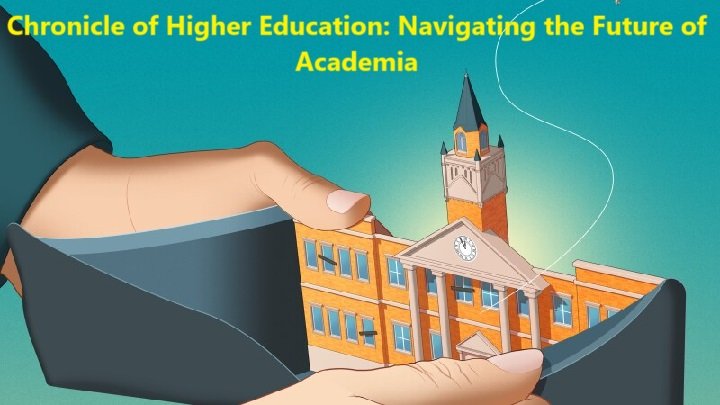
Miss Circle Fundamental Paper
Miss Circle Fundamental Paper: Revolutionizing Education Foundations
Education is the bedrock of progress and development in every society. Over the decades, there have been numerous initiatives to improve the quality of education, yet persistent gaps remain. One document, the Miss Circle Fundamental Paper, is gaining attention for its fresh perspective on addressing foundational issues within education. This paper seeks to provide practical, research-based solutions that can help educators, policymakers, and governments align their goals toward improving the overall quality of education.
In this article, we’ll explore what the Miss Circle Fundamental Paper entails, its core principles, its vision for the future of education, and how it might reshape educational practices globally.
The Miss Circle Fundamental Paper: What Is It?
The Miss Circle Fundamental Paper is a comprehensive policy document that outlines a series of recommendations aimed at transforming the education system. It focuses on bridging the gap between traditional and modern educational practices while putting emphasis on foundational learning—which includes literacy, numeracy, and socio-emotional skills.
At its core, the paper emphasizes the importance of fundamental skills as the cornerstone of a well-rounded education. It argues that many of the challenges faced by students, especially in underperforming educational systems, stem from weak foundational skills. By addressing these early and consistently, the paper suggests, that education systems can be reformed to deliver better outcomes for all students.
The Core Principles of the Miss Circle Fundamental Paper
The Miss Circle Fundamental Paper is built on five key principles that serve as the foundation for educational reform. These principles are designed to be adaptable to different educational contexts while remaining aligned with global educational goals such as the United Nations’ Sustainable Development Goal 4 (SDG 4)—which aims to “ensure inclusive and equitable quality education and promote lifelong learning opportunities for all.”
1. Focus on Early Learning Foundations
The paper emphasizes the importance of early learning and suggests that the majority of educational resources and attention should be focused on pre-primary and primary education. According to research cited in the paper, if children do not master the basics of literacy and numeracy by the time they complete primary school, they are at a disadvantage for the rest of their educational journey.
By prioritizing early learning, the Miss Circle Fundamental Paper aims to tackle these gaps early in a child’s education, laying the groundwork for future success.
2. Contextualized Learning Materials
One key challenge in education is the one-size-fits-all approach that many systems use. The Miss Circle Fundamental Paper calls for the development of contextualized learning materials that reflect the cultural, social, and economic realities of students.
Contextualization helps make learning more relatable and engaging, which is particularly important in diverse regions where students’ backgrounds can vastly differ. By incorporating local languages, histories, and examples, education becomes more accessible and meaningful to students.
3. Teacher Professional Development
At the heart of any educational system are the teachers who bring learning to life for students. However, many teachers are under-trained or face systemic challenges that prevent them from providing the best education possible. The Miss Circle Fundamental Paper advocates for comprehensive teacher development programs, offering continuous professional development to ensure teachers are well-equipped to meet the needs of their students.
The paper also emphasizes teacher motivation, suggesting that improving working conditions, offering competitive salaries, and providing resources are critical to retaining high-quality educators.
4. Equity and Inclusivity
The paper highlights that educational reform cannot be effective unless it addresses issues of equity and inclusivity. This principle underscores the need for educational systems to offer equal opportunities for all students, regardless of gender, socioeconomic status, or disability.
The Miss Circle Fundamental Paper calls for governments to focus on marginalized populations, including rural communities, students with disabilities, and girls, who are often excluded from quality education. Policies should ensure that resources are allocated fairly, and support systems are in place to help those who face significant barriers to education.
5. Data-Driven Decision Making
Finally, the paper emphasizes the importance of data in driving educational reforms. It advocates for the use of real-time, high-quality data to inform policy decisions and ensure that interventions are effective.
Data collection should include information on student learning outcomes, teacher performance, and resource allocation. Governments and educational institutions are urged to use this data to identify gaps in the system, measure progress, and adjust strategies where necessary.
The Global Impact of the Miss Circle Fundamental Paper
The Miss Circle Fundamental Paper has the potential to be a catalyst for global educational reform. While the principles outlined in the document are universally applicable, they are also flexible enough to be adapted to the unique needs of different educational systems. This adaptability makes the paper relevant to both developing and developed countries.
Education in Developing Countries
In many developing nations, the education system is plagued by a lack of resources, overcrowded classrooms, and underqualified teachers. The Miss Circle Fundamental Paper can help address these challenges by encouraging governments to invest in early childhood education, professional development for teachers, and educational equity for marginalized populations.
By focusing on foundational skills, the paper provides a roadmap for improving learning outcomes for the millions of children who currently struggle to acquire basic literacy and numeracy skills.
Education in Developed Countries
Even in developed nations, where educational outcomes are generally higher, there are significant gaps between different populations. The Miss Circle Fundamental Paper’s focus on contextualized learning and equity can help reduce disparities in education quality and outcomes.
In these countries, the paper also advocates for a shift towards more personalized learning approaches that cater to the individual needs of students, rather than a one-size-fits-all model. By incorporating data-driven decision-making processes, developed nations can refine their educational systems to produce even better outcomes.
Challenges to Implementing the Miss Circle Fundamental Paper
While the vision outlined in the Miss Circle Fundamental Paper is ambitious, its implementation is not without challenges. Some of the key obstacles include:
- Funding: Implementing many of the recommendations will require significant financial investment, particularly in countries where education budgets are already stretched thin.
- Resistance to Change: Educational systems can be slow to change, and there may be resistance from stakeholders who are comfortable with the status quo.
- Lack of Political Will: In some cases, governments may be unwilling to make the necessary reforms due to competing priorities or a lack of understanding of the long-term benefits of educational reform.
- Data Collection Infrastructure: In many countries, the infrastructure for collecting and analyzing education data is weak, making it difficult to implement data-driven decision-making.
Conclusion: The Future of Education Reform
The Miss Circle Fundamental Paper represents a bold step toward addressing the root causes of underperformance in education systems worldwide. By focusing on foundational skills, teacher development, equity, and data-driven reforms, it offers a comprehensive and adaptable framework for educational transformation.
While challenges remain, the principles outlined in the paper provide a roadmap for governments, educators, and policymakers to work together to create more inclusive, equitable, and effective educational systems. If implemented successfully, the Miss Circle Fundamental Paper could pave the way for a brighter, more educated future for generations to come.
Read More: Genius Magazines






